#as someone whose southern accent is so much more apparent during times of different emotions no matter what i do to hide it:
Explore tagged Tumblr posts
Text

Not shown are their matching internal monologs of "Holy fuck holy fuck h o l y FUCK she's so cute shit shit shit--"
#pre relationship they run into each other in the castle halls and become soft blushing messes for each other ❤️🖤#as someone whose southern accent is so much more apparent during times of different emotions no matter what i do to hide it:#keith has the same damn problem ❤️#she's great at hiding it most of the time but the second she's around shiro she's full on texan again#lance forever teases her for it but both hunk and shiro think it's sweet and adorable respectively#sheith#shiro x keith#shiro/keith#fem sheith#fem sheith fanart#fem keith#fem shiro#pre relationship#voltron: legendary defender#vld#keith kogane#takashi shirogane#fanart#my art#pencil on paper#sketch#rough sketch#sheithbians#lesbian sheith#this has nothing to do with this but i need y'all to know that every fem shiro i draw is trans female shiro 🩷#we love and suport trans lesbians in this house 💖🩷💕
7 notes
·
View notes
Text
Week 4 - About a Boy
It isn't Friday the 22nd of November, 1963 The time isn't 12:30 p.m. It's actually October 18th, 1939, and we're in New Orleans, Louisiana. A kid called Lee Harvey Oswald has just been born and looks a bit put out that someone has made him wear a yellow dress.
Welcome to Part One of the strangest story of them all.
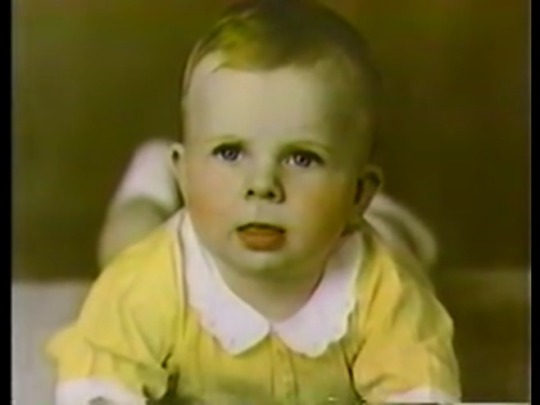
Ever since the assassination, the details of Oswald's childhood have been a rich source of speculation for researchers trying to understand him. Whether they're accusing him or defending him, there's a sense that the answers can be found in his formative years - that small actions here can be extrapolated into significant actions later.
For example, they point to the fact that his father died two months before he was born. This MUST have had a negative impact on his life, they argue.
They then psychoanalyse the mother - describing her as either a woman with good morals, doing what she thought best, or a domineering matriarch, consumed with self-pity.
Consider this from Lee's step-brother -
"If Lee was guilty then he was aided with a little extra push from his mother in the living conditions that she presented to him."
The conditions he refers to are various stages of poverty and dislocation brought upon by Oswald's mother constantly moving around looking for work. Again, they point to the unsettling effect this must have had on the child and, to be fair, it's hard to argue with the basic facts -
During his childhood, Lee Harvey Oswald lived in 22 different places and attended 12 different schools.
So far so bad for the poor kid then - his family are basically accomplices to a future crime and his early life is the worst series of The Littlest Hobo ever.
If he’d had a jaunty theme tune maybe things would have turned out differently.
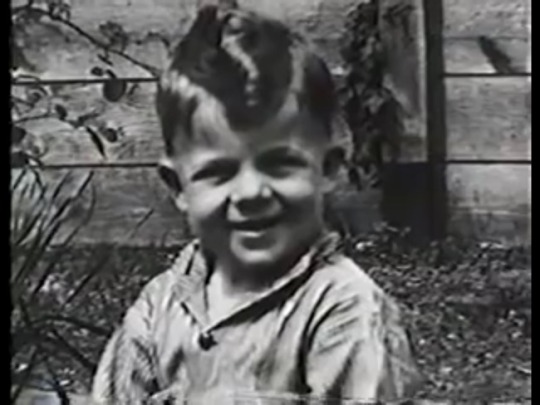
With the simplistic overview out of the way, researchers and investigators dig deeper into his life looking for evidence of violence or rebelliousness - some sort of Rosebud moment that helps their case.
Some of these are potentially damning - he once threatened his step brother's wife with a pocket knife and, when his mother tried to intervene, he punched her in the face.
Some are just funny - he once got kicked off the school football team because he said the coach's rules violated his constitutional rights.
And some are just bizarre.
Julian Evans, a family friend of the Oswald's, told The Warren Commission a story about how he once took the young Oswald fishing with a group of other boys. He said everyone else threw the little fish back in the river and took the big ones home for dinner. But Oswald, he's at pains to add, was different.
Apparently he lined up all the fish he caught on the bank of the river and just walked off, leaving them to die.
The point of such testimony, of course, is to make an orchestra suddenly start in your mind - a crescendo of low notes that damns Oswald and convinces you of his guilt. But can they be trusted? How many of these stories have since been told through the prism of what he has been accused of and coloured by confirmation bias?
Here’s another section of Evan’s testimony to illustrate the point –
Mr JENNER: Did you ever see Lee Oswald in any fits of temper, so to speak?
Mr EVANS: - No; I didn’t.
Ok, that’s good.
Mr JENNER: Did you ever observe anything about Lee Oswald that would lead you to believe that he had any propensity toward acts of violence on the person of anybody else?
Mr EVANS: - No
Even better, I reckon he’s definitely innocent now.
Mr JENNER: What other impressions did you have of this boy?
Mr EVANS – Well, I thought he was a psycho.
Oh.
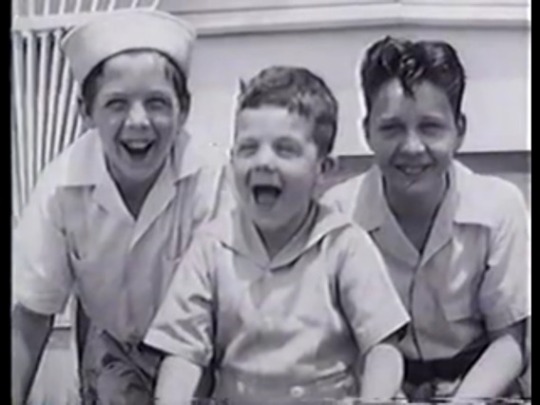
Probably the best assessment of Oswald’s childhood comes from his time in New York in 1952.
At aged 13, he attended a junior high school in the Bronx only to find himself a figure of fun due to his southern accent and his “western clothes.” So, not for the first time, he decides that school isn’t really for him and, instead, spends his days riding the New York Subway and hanging out at the Bronx Zoo. It’s here that a truant officer finds him and he’s subsequently remanded to an institution called Youth House for psychiatric evaluation.
One of the doctors there described him as a “seriously detached, withdrawn youngster”. She further added that there was "a rather pleasant, appealing quality which grows as one speaks to him." For his part, the young Oswald confirmed that he felt there was a veil between him and other people that he preferred to keep intact. He blamed his mother for virtually everything, telling the doctors that he felt she never cared enough about him and that he was a burden to her. He also admitted to fantasies about being powerful and sometimes hurting and killing people. But when asked to elaborate on these, he told the doctors it was none of their business.
The initial report on him states -
“Lee has to be diagnosed as personality pattern disturbance with schizoid features and passive--aggressive tendencies. Lee has to be seen as an emotionally, quite disturbed youngster who suffers under the impact of existing emotional isolation and deprivation, lack of affection, absence of family life and rejection by a self-involved and conflicted mother.”
It concluded –
“Despite his withdrawal, he gives the impression that he is not so difficult to reach as he appears and patient, prolonged effort in a sustained relationship with one therapist might bring results. There are indications that he has suffered serious personality damage but if he can receive help quickly this might be repaired to some extent.”
Unfortunately, though, Lee never received the prescribed help he needed. One day his mother came to visit him and he said “I want to get out of here. There are people in here that have killed people, and smoke.”
Deciding that she’d had enough of doctors interfering with her son, they packed their bags again and returned to New Orleans - moving into a red light district of prostitution and low level gangsters.
That’s bound to help.
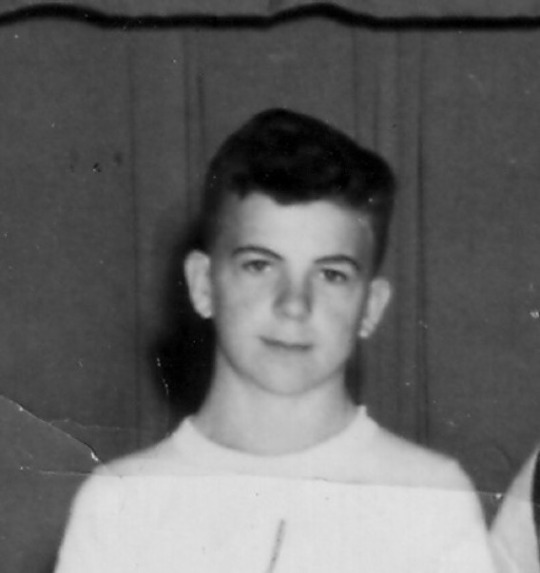
In future years, when that perennial question was asked – “Where were you when you heard JFK had been shot?” – it was the people in Dallas that had THE answer. And as we’ve seen so far, it was just the beginning of the stories they would tell.
“It was a heckle. Umbrellas are not a particular hobby of mine.”
“God put me there because I’ve got super eyesight.”
“I had a load of dark wigs back then and a prototype camera.”
The six seconds they witnessed would become the starting point for the rest of their lives whilst, yet again, the 24-year-old in the Texas School Book Depository was different – providing a testimony to these events that would be frustratingly brief and lacking any detail. Still, of all the characters in Dealey Plaza that day, he’s the one who deserves a backstory – the one that I want you to feel like you know before 12:30pm.
Not that it’s easy.
I’ve read so many accounts of Oswald’s early life now that it’s difficult to be certain of anything other than a sense of tragedy and a touch of empathy. At its most benign, the character that’s painted of the young Oswald is similar to my own experience through adolescence, as I’m sure it is for many other people. Even Bob Dylan, a month after the assassination, said that he saw a lot of himself in the accused assassin – a comment that sparked a huge controversy but was probably more reasoned than people gave it credit for.
Didn’t we all sometimes wear a veil when we were growing up?
Haven’t we all got our own version of the fish story if we zoom in on our own lives?
I know I have, which is probably why I find some of these stories amusing rather than damning. Maybe it’s me, but I’ve often paused to think about how his ex-football coach must have reacted to seeing Oswald in police custody in 1963.
“Here he goes, emphatically denying these charges and banging on about his constitutional rights again. He hasn’t changed much.”
Still, people are different. I guess that’s the point and, as I’ve said before, my imagination is prone to get in the way of the search for truth here.
My own sense of teenage estrangement passed because I was fortunate enough to benefit from a counter culture that catered for it. But Oswald had no such luxury, he’s stuck in 1953, listening to classical music because Psychocandy hasn’t been released yet. He’s 14, it’s the time in his life when he’s looking for external stimulation to define himself.
We know of two things that happened next.
Firstly, he went for a walk one day and an old woman on a street corner gave him a leaflet about a Jewish couple that were about to be executed for being communist spies. He follows this with a trip to the library and starts to read a series of books on Marxism.
Secondly, in October of 1953, a new television show premieres on American television called I Led Three Lives. Its main character was simultaneously a suburban husband, a member of the Communist Party, and a spy for the FBI.
It became Lee Harvey Oswald’s favourite TV show.
And it’s where we’ll leave him for now - glued to a programme whose message was that you could be anything to anyone.
Join us next week, when we head back to Dallas.
Martin Fitzgerald (@RamJfkClub)
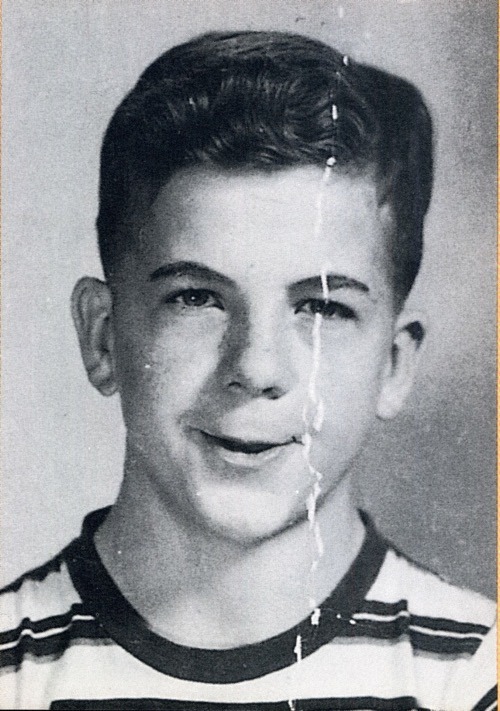
3 notes
·
View notes